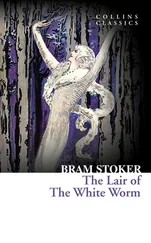During those dizzying days, Gora called me. We’d known each other for a long time, through Mihnea Palade, the Bukovina native who’d finished high school a few years after me, in our little town of trees and idylls. He was the one who introduced me to the suspects’ attic.
Palade had stopped me in the center of the capital, in front of the Italian church. We hadn’t seen each other since his arrival at the university. On a long walk around the beautiful Ioanid Park, not far from where he’d found me, I shared with him my elation over the anonymity of a large city, and he told me all about his new circle of friends with whom he debated literature and religion and philosophy and art. He seemed vitalized and enthusiastic, happy that the same temptations appealed even to a polytechnic man such as I was. He was studying mathematics himself, not quite born with Leo-pardi’s milk bottle in his mouth, either. And he sought to forge a sort of cultural solidarity between us, not just a geographic one. He gave me the address of the attic, adding maliciously, “It’s not like drinking with women. It’s much, much worse.”
A few boys, a couple of girls. The excessively esoteric discussions, and the juvenile assurance by which those discussions were amplified, bored me, and the open anti-Communism seemed suspect. Blowhard interventions, like some spoken essays, irritated me. I don’t have any special recollection of that night, except for my obsession with Lu.
Neither Gora nor Palade forgot the bizarre state of embarrassment and skepticism of the bibliophile that I was. Gora had participated — with increasing fervor, as I was to find out — in the heated controversies, which he himself directed gradually away from politics and toward literature. That was where Mihnea Palade expounded on Borges’ Death and the Compass and Kafka’s The Trial or Orwell’s allegory, Dima’s books and life. That was where he reen-countered Lu, whom he’d known from some Saturday night parties with other young people captivated by music and dance. I still haven’t forgotten his first descriptions of her.
“She’s beautiful, but there are times when she isn’t. When she can’t avoid or hide her timidity, her spark leaves her. She’s used to glowing, she’s unstable, fighting with her instability. Other times … other times she’s happy, sociable, her thoughts elsewhere and nowhere. Liberated by absence, then drawn in deeper into herself. I felt her emotion, and her emotiveness. Just when she seems to be made of steel, perfect, in control of herself. In a familiar context, however, she’s irresistible. Sovereign and self-sufficient? Not at all, not at all! Fragile, with an unwieldy discipline for appearances. Emotion, then. An extraordinary sexual premise, no?”
Even later, Palade never hid his envy in relation to Gora, tied not only to the mysterious Lu, but also, once he arrived in America, to Dima. Even though he’d given the entitlement of his will to Palade, it seemed that Dima secretly preferred Gora. His wife in exile, Merrie, a distinguished Englishwoman, elegant and credulous and fashionable, also seemed to trust Gora more. After the Old Man’s death she allowed him to consult the secret Green Notebook, written during the war years. Gora promised not to tell anyone about it and never to write anything about the secret text. He never mentioned the Green Notebook, not in his meetings with Palade, nor in the bibliography he suggested to Ga  par for the review.
par for the review.
I was bewildered by Ga  par’s sudden disappearance, but also by the fact that after Gora related to me the sensational and troubling news, he moved on immediately to the subject of Dima, with no apparent segue. As if there had existed some connection between the two subjects that he wasn’t mentioning.
par’s sudden disappearance, but also by the fact that after Gora related to me the sensational and troubling news, he moved on immediately to the subject of Dima, with no apparent segue. As if there had existed some connection between the two subjects that he wasn’t mentioning.
“Dima had access to all the information about the war, he knew the horrors committed by the Germans in the East, but… not a word in all his notes, no concern for the fate of Marga Stern, his lover in his youth. He’d shared her for some time, it seemed, with his predecessor, he’d become jealous, forced her to choose, and she’d preferred him. Then to read that he was horrified merely by Stalingrad! What about what would happen to Marga, and not just to Marga, if the Germans had won? Not a word about that in his diary.”
Was Dima’s admirer disassociating himself from the Maestro because of Peter Gaspar’s disappearance!? Because of the review that he himself should have written instead of guiding the neophyte Ga  par according to his own designs? Was the Old Man worried for his people?! Wasn’t Marga Stern a citizen of his country? Wasn’t she a member of Dima’s people?
par according to his own designs? Was the Old Man worried for his people?! Wasn’t Marga Stern a citizen of his country? Wasn’t she a member of Dima’s people?
Gora didn’t suspect that I knew everything about Marga Stern the whole time that he was informing me about it; his pathos was amusing to me.
“It’s not a matter of a single person, but of all the people of which the world simply disposes. With indifference, no?”
Gora appeared ransacked by memories and resentments, fueled by Ga  par’s disappearance.
par’s disappearance.
“People of which other people disposed, pure and simple. Ideas are ideas, abstractions, games of the mind. The real test of ideas is people, how people relate to people.”
For a loner such as Gora, this affirmation signaled serious trouble. I telephoned him after that, he called me, too, we kept debating Ga  par’s disappearance.
par’s disappearance.
I was convinced that I was a mere replacement. He couldn’t talk to Lu about the disappearance or perhaps he’d tried and wouldn’t allow himself to try again, and he needed someone else from his former country. He would have preferred Palade, he didn’t know about my last meetings with Palade.
When he decided to return to his native country for a week to see his family and to introduce his fiancee, after two decades of being away, Palade called wanting to meet with me. I’d been here for only two years at that time, and I was dazed by the lessons of the unknown.
I’d written him that I’d arrived in the New World, he answered, we spoke on the phone several times, he put me in touch with Gora, and then the dialogue ended.
We met in Central Park, not far from the children’s playground, in front of the characters from Alice in Wonderland. He’d come to New York specifically, he alleged, for that unexpected rendezvous.
His oddities and extravagances were multiplying, I’d discovered, but I made no sign of surprise or protest.
It was spring, a superb day, neither hot, nor cold, nor rainy. We saw each other, smiled at each other, embraced. Palade seemed hurried, he went right to the point.
“I’m going home to our humorous little homeland. Maybe to die there.”
I wasn’t expecting such a direct approach, I was determined to intervene as little as possible.
“You might ask why I chose precisely you. Very few know that we’re from the same town. We haven’t seen each other in a long time. Since that memorable evening when I tried to introduce you to the literary youth of the moment. You retreated. The group seemed suspect to you.”
I hadn’t remembered being quite so expressive. He was, however, exactly right about the motive for my disappearance from the enchanting attic. The wisdom of cowardice. I avoided risky situations, which, in any case, were many.
“Unfortunately, you were right. The Secret Service files that remain and that weren’t forged show that you were right. Yet another reason for this meeting.”
Читать дальше

 par for the review.
par for the review.










